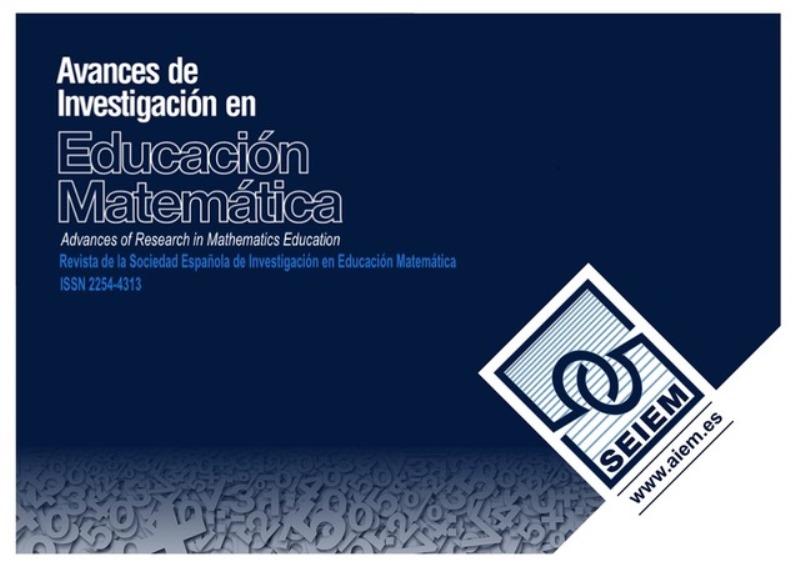Didactic engineering fordevelopingalgebraic sense inprospective elementary school teachers
DOI:
https://doi.org/10.35763/aiem.v1i5.70Keywords:
Elementary algebraic reasoning, prospective school teachers, algebrization levels, instructional design, onto-semiotic approachAbstract
In this paper we analyze a formative experience directed to prospective primary school teachers, which was aimed at developing their competence to discriminate algebraic objects and the different algebraization levels of school mathematical activity. The experience was performed in a Teaching and Learning primary school mathematics course, where elementary algebraic reasoning was a transversal topic for the remaining mathematical themes. The methodology was based on didactic engineering, which was understood in a generalized sense and was based on the onto-semiotic approach to mathematical knowledge and instruction. The activities designed to develop elementary algebraic reasoning were carried out by 56 students. Our preliminary analysissuggestthe relevance of this content for teacher education, although the recognition of algebraic object and the assignment of algebraization levels were difficult to achieve with the resources allocated in the implemented training process
Downloads
Downloads
Published
How to Cite
Issue
Section
License
The articles published in this journal are under a license Creative Commons: By 4.0 España from number 21 (2022).
Authors who publish with this journal agree to the following terms:
- Authors retain copyright and keep the acknowledgement of authorship.
- The texts published in this journal are – unless indicated otherwise – covered by the Creative Commons Attribution 4.0 international licence. You may copy, distribute, transmit and adapt the work, provided you attribute it (authorship, journal name, publisher) in the manner specified by the author(s) or licensor(s). The full text of the licence can be consulted here: http://creativecommons.org/licenses/by-nc/4.0.
- Authors are able to enter into separate, additional contractual arrangements for the non-exclusive distribution of the journal's published version of the work (e.g., post it to an institutional repository or publish it in a book), with an acknowledgement of its initial publication in this journal.
- Authors are permitted and encouraged to post their work online (e.g., in institutional repositories or on their website) prior to and during the submission process, as it can lead to productive exchanges, as well as earlier and greater citation of published work (See The Effect of Open Access).









